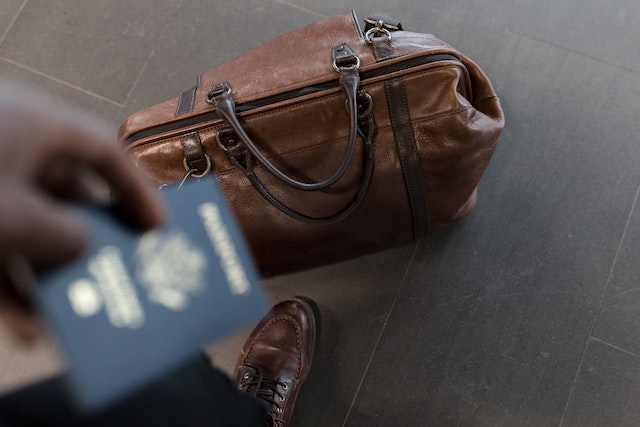Last Updated on: 22nd November 2023, 03:17 am
Traveling to China for business can be a thrilling prospect, filled with unique opportunities for professional growth and expansion. Yet, it also comes with its own set of challenges. Understanding cultural nuances, technological essentials, and necessary preparations can help ensure a successful business trip. This article aims to provide some insightful tips to make your business travel to China a smooth and productive journey.
Understanding the Chinese Business Culture
The first step towards a successful business trip to China is understanding and respecting the Chinese business culture. Chinese business etiquette is steeply rooted in Confucian principles of hierarchy, respect, and saving face. Always address your Chinese counterparts by their formal title and surname. Punctuality is highly valued, and meetings often start with some small talk to establish rapport. Business cards should be exchanged at the beginning of a meeting, and it’s crucial to give and receive them with both hands, treating them with respect as they represent the person. Remember, building relationships, or ‘guanxi’, is key to doing business in China.
Mastering the Art of Communication
Effective communication forms the bedrock of any successful business interaction. In China, the use of non-verbal communication is prevalent, and it’s important to pay attention to subtle cues. Moreover, the Chinese often use indirect communication, implying things instead of saying them outright. Learning some basic phrases in Mandarin, the official language, can be beneficial and will be appreciated. Additionally, bear in mind that written communication is often preferred over phone calls.
Invest in a Reliable VPN
Internet access in China is subject to restrictions. Many commonly used websites and services, such as Google, Facebook, and WhatsApp, are blocked. Therefore, investing in a reliable Virtual Private Network (VPN) before you travel is essential. A VPN allows you to connect to a server located outside China, thus bypassing the ‘Great Firewall.’ You really need to put some time into finding the best vpn for china so you can continue your usual business activity. This will enable you to access your emails, social media, and other essential business tools. Ensure your VPN is installed and working on all your devices before you leave for China.
Plan for Travel and Accommodation
China is a vast country with an efficient public transportation system. Understand the geography of your destinations, and plan your travel accordingly. High-speed trains are an excellent way to traverse longer distances, while metros are ideal for city travel. Taxis are affordable but remember that most taxi drivers do not speak English, so have your destination written in Chinese. When booking accommodation, select hotels that cater to international business travelers, as they are equipped to meet your business needs.
Health and Safety
While China is generally safe for travelers, it’s always good to take precautions. Be aware of your surroundings, especially in crowded places. Check travel advisories before your trip and get necessary vaccinations. Also, air pollution can be a concern in some cities, so consider packing a mask. Tap water is not drinkable, but bottled water is widely available.
Food and Dining Etiquette
Chinese cuisine varies greatly across different regions. Be open to trying local foods, but be cautious about street food to avoid possible stomach upsets. Business dinners are common in China, where dining etiquette is important. The host usually orders the food, and it’s polite to sample every dish. Also, note that the concept of splitting the bill is not common in China. Usually, the person who extends the invitation pays the bill.
Pack Wisely: Essential Items for Your China Business Trip
Equally important is to pack wisely for your trip to China, keeping in mind not just the climate but also the cultural and technological specifics. Here are some key items to include in your suitcase:
Business Attire: Chinese business culture leans towards formal attire. For men, this usually means a suit and tie, and for women, a conservative dress or a blouse with a skirt or trousers.
VPN: As mentioned earlier, invest in a good VPN. Ensure it is installed and operational on all your devices, including your laptop and smartphone.
Adapters: China uses Type A and Type I outlets, so be sure to pack appropriate power adapters for your devices.
Business Cards: Bring a good supply of business cards as they are frequently exchanged. If possible, get one side of your business card translated into Mandarin.
Gifts: It’s common to exchange small gifts in business meetings. Bring along some items that are representative of your home country or region.
Medication and Health Supplies: Don’t forget to pack any prescription medications you may need. It can also be beneficial to bring over-the-counter medicines for common ailments, a pollution mask, and hand sanitizer.
Translation App: While it’s not a physical item, downloading a translation app on your smartphone can be a lifesaver when trying to communicate or navigate.
Remember, a well-packed suitcase is your first step towards a stress-free and successful business trip.
Prepare for Success
Traveling to China for business is a unique experience. While it can seem daunting, with the right preparation, it can be a rewarding journey. Understanding cultural norms, investing in a reliable VPN, planning travel and accommodation wisely, staying vigilant about health and safety, and respecting food and dining etiquette can ensure a successful and enjoyable trip. Remember, the key to a successful business trip to China, as with any foreign country, lies in preparation, respect for the local culture, and flexibility.



